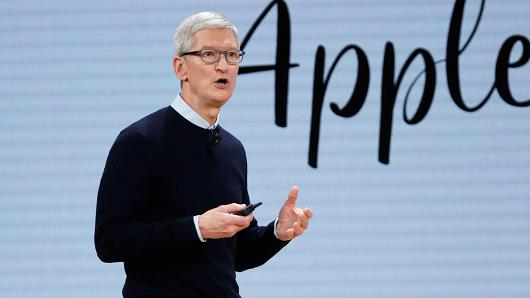
John Gress | Reuters
Tim Cook, Chief Executive Officer of Apple Inc., takes part in an education-focused event at Lane Technical College Prep High School in Chicago, Illinois, U.S., March 27, 2018.
Apple wants to bring consumers’ medical information, like lab tests and immunizations, to its iPhone, and now 40 hospitals have agreed to step up and help.
The willingness of health care institutions to work with Apple is a big deal, given the slow pace of change in medicine relative to other sectors. But what’s more important about Apple’s moves into the space is the mission behind it.
“Doctors put patients in charge,” Apple’s news release reads.
“We view the future as consumers owning their own health data,” Apple Chief Operating Officer Jeff Williams, said in a recent interview with CNBC.
It might not seem like it, but that’s a truly revolutionary idea.
That’s because for years, patients have been putting doctors in charge — and not the other way around. And the system has encouraged it.
Not long ago — in the 1960s and 1970s — doctors routinely failed to inform patients about severe diagnoses, like late-stage cancer.
Studies have shown that this practice is still pervasive today with physicians failing to tell their patients they have a neurological condition like Alzheimer’s Disease.
Moreover, it is still expensive and time-consuming for patients to access their own health data.
Hospitals still regularly charge people a fee for it in many states, or they’ll refuse to share it in a computer-readable format and will fax over a PDF.
For some medical experts, enough is enough.
“We’ve spent 20 years trying to get the language to change to reflect models that are patient-controlled,” said Kenneth Mandl, who directs the computational health informatics program at Boston Children’s Hospital.
Mandl and others envision a new model for medicine where an informed patient is at the center of their own care, rather than on the sidelines.
 EU News Digest Latest News & Updates
EU News Digest Latest News & Updates



